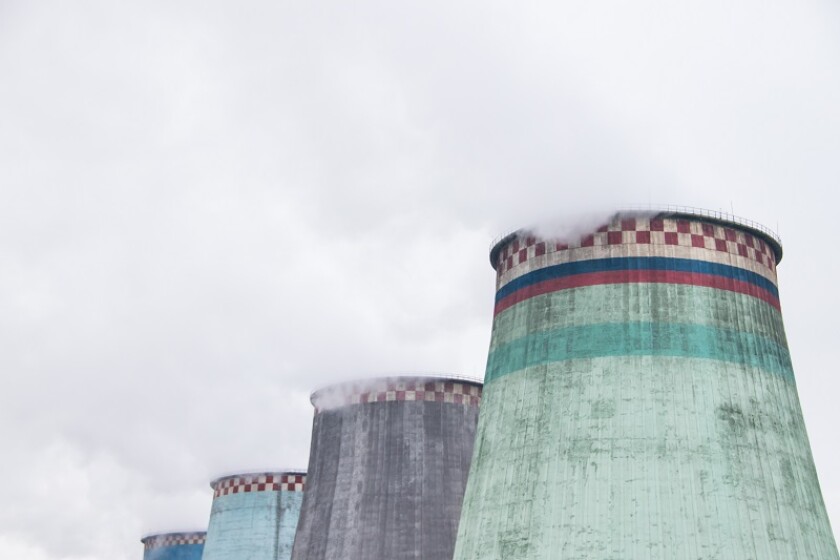
|

|
Zeynep Lale |
Mustafa Yazgan |
Turkey has been dreaming of a nuclear power plant (NPP) on its soil since the early 1960s. Although several tenders have been held since that time, not one has come to fruition. Because the establishment and operation of an NPP is a more delicate and complicated process than for any other type of power plant, NPPs require a comprehensive and detailed legislative framework. It has been a long, drawn-out adventure, and the end is not yet in sight.
For various reasons, the tenders launched in 1977, 1982 and 1996 were all ultimately cancelled by the government. In a tender initiated in 2008, only one Russian group submitted a bid. In the meantime, the Council of State intervened and cancelled certain provisions of the Regulation. On account of these failures, Turkey changed its nuclear energy strategy and chose to proceed with the establishment and operation of NPPs through the medium of the intergovernmental agreement (IGA).
Accordingly, the Turkish and Russian governments entered into an agreement on cooperation in the construction and operation of an NPP at Akkuyu, in north-central Turkey, and the Turkish Parliament's ratification decision was published in the Official Gazette on July 21 2010. It is expected that in the near future, through a Council of Ministers Decree, the IGA will enter into force upon its publication in the Official Gazette.
This IGA between Russia and Turkey constitutes the legal basis for the establishment and operation of the first NPP in Turkey. An IGA has the force of Turkish law under the Turkish Constitution (in fact, in certain respects, it has even greater force than a domestic law). The IGA mainly regulates the following.
Project company incorporation and shareholding structure: the project company will be incorporated within three months as of the date the IGA was signed. This company will be entirely owned by the Russian company, Rosatom, and cumulative shares of the Russian company will not fall below 51% at any time.
Profit sharing: After the expiry of the power purchase agreement (PPA), which will be no earlier than 15 years after the commercial operation date, the project company will share 20% of the net profit derived from operating the NPP with the Turkish government throughout its lifetime.
Permits and licences: The project company is required to obtain all necessary permits and licenses for the construction of the NPP within one year of the entry into force of the IGA;
Construction and operation periods: The first unit of the NPP will be commissioned within a maximum period of seven years, and the remaining units will be commissioned at one-year intervals after the first unit's commercial operation commencement date.
Participation in frequency control: Under the Regulation on Electricity Market Settlement and Balancing, the NPP will participate in the balancing of the Turkish transmission system to the extent consistent with technical parameters.
Guaranteed unit price: The average unit price is determined as $0.1235 per KWh (excluding VAT), and no escalation will be applied to such unit price.
PPA terms and conditions: The Turkish Electricity Trade and Undertaking Company will purchase 70% of the electricity generated in the first and second units, and 30% of the electricity generated in the third and fourth units, for a period of 15 years.
Site allocation: The Turkish government will allocate the site to the project company free of any charge.
Waste management and decommissioning: The project company will carry out the waste management and decommissioning, and it must pay $0.0015 per KWh separately to each of the waste management and decommissioning accounts.
Insurance: The project company is responsible for insuring all the risks in such a way as to cover both the investment and operation periods.
Employees: The Russian side will supply the majority of the employees for the NPP project and Turkish citizens will also be trained for these purposes free of charge.
Settlement of disputes: Disputes arising from the IGA will be resolved through the mutual agreement of the parties and if such mutual agreement cannot be reached it will be resolved through arbitration and the seat of arbitration will be in The Hague.
Termination of the IGA: The IGA will be valid until the decommissioning of the NPP is completed, and the parties may terminate it at any time upon serving notice one year in advance.
In July 2010, media sources reported that the opposition Republican People's Party (CHP) planned to initiate a lawsuit before the Constitutional Court to have the IGA cancelled. CHP has asserted that the construction and operation rights of the NPP should have been awarded through a tender.
The party further alleges that the IGA's main purpose is to avoid legal constraints through misuse of the constitutional status of international agreements duly ratified by the Parliament within the framework of Article 90 of the Turkish Constitution. Initiation of this lawsuit indicates that both the preparatory work and the implementation transactions in relation to NPPs will be cumbersome and subject to debate.
Zeynep Lale and Mustafa Yazgan
